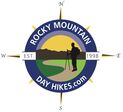|
USFS Press Release FORT COLLINS, Colo. (May 4, 2021) -- Arapaho and Roosevelt National Forests and Pawnee National Grassland managers are exploring new strategies to help visitors have safe and enjoyable outdoor experiences this summer while protecting wildlife, clean water and healthy forests. From selling passes online for the most popular developed recreation areas to shifting some of the most visited areas to day-use only, National Forest managers are planning for another very busy recreation season amidst an ongoing worldwide pandemic.
“For outdoor recreationists, the most important message this year is to ‘Know Before You Go,’ said recreation program manager Erich Roeber. “Just like you might plan a family vacation or research a product before purchasing, public lands visitors really need to do their homework this year before they head out on an adventure. Otherwise, they might show up somewhere and realize they needed to buy a pass in advance, or book a reservation, or that they can’t camp in the same exact place where they camped last year.” 2020 brought a 200% increase in outdoor recreation across Colorado’s northern Front Range, with a large number of first-time visitors seeking an escape from the constraints of social distancing. This resulted in long lines and wait times at welcome stations, overflowing parking at trailheads, and cars parked unsafely for miles along county roads, obstructing roadways. To reduce crowding at welcome stations, restrooms and parking areas this year, the Forest is developing a timed-entry pass system for Mount Evans and Brainard Lake. While the project is still in development, all pass sales will occur online on Recreation.gov and passes are expected to be available to purchase beginning in late May. Mount Evans is tentatively scheduled to open June 4 and the Brainard Lake welcome station is tentatively scheduled to open June 11. Outside of developed campgrounds, National Forest visitors created thousands of new campsites as they pulled off roads and damaged resources, trampling vegetation and compacting soils with tents, campers and vehicles. Visitors built hundreds of new rock campfire rings and negatively impacted municipal water supplies with human waste and trash. To help some of these trampled places heal, the Forest is working closely with local county officials to target a few areas for temporary “day-use-only” designations this year. Recreation staff will use the opportunity to explore more sustainable options for managing these places into the future. 2020 was also a bad year for human-wildlife interactions as bears entered campsites and tents in areas where visitors hadn’t properly stored their food. To help keep Colorado’s wildlife wild and reduce unwanted encounters, the forest is collaborating with Colorado Parks and Wildlife in developing food storage requirements for visitors across the Forest. Most notably, 2020 was a year during which human-caused wildfires burned 25 percent of the Arapaho and Roosevelt National Forests, devastating communities, destroying homes and taking lives. The Forest and our communities are still healing from these fires. Recovery is expected to take years. As soon as the snow melts, Forest personnel will be heavily focused on assessing and stabilizing the burned areas; and the burned areas are expected to remain largely off limits to the public until critical life-safety road and trail stabilization needs can be addressed. Unfortunately, much of Colorado is still in some degree of drought, ranging from severe to exceptional. While precipitation has improved this spring, it may not bring enough moisture to prevent large logs and trees from catching fire easily. Due to this danger, compounded by the increase in visitors, the Forest is working closely with its state and local partners to determine the best time to implement fire restrictions as temperatures warm up. Regardless of when fire restrictions go into place, the public is urged to be extremely cautious with all potential sources of ignition this year. More information will be shared in the weeks to come as the Forest works with its community partners and public lands neighbors across the northern Front Range and Grand County to finalize these plans. In the meantime, get the most accurate recreation information by checking official Know Before You Go resources on the local National Forest website and elsewhere. In addition to weather forecasts and road and trail conditions for the area, visitors should be sure to research how to buy passes, how to find campsites, and whether campfires are allowed. Please be safe out there this summer. #CareforColorado and #RecreateResponsibly
1 Comment
RDeyoung
5/7/2021 06:04:10 am
How about going back to responsible forest management so massive wildfires are mitigated?
Reply
Leave a Reply. |
RMNP UpdatesPress Releases from Rocky Mountain National Park and the Rocky Mountain Conservancy.
Archives
September 2025
|
© Copyright 2025 Barefoot Publications, All Rights Reserved
